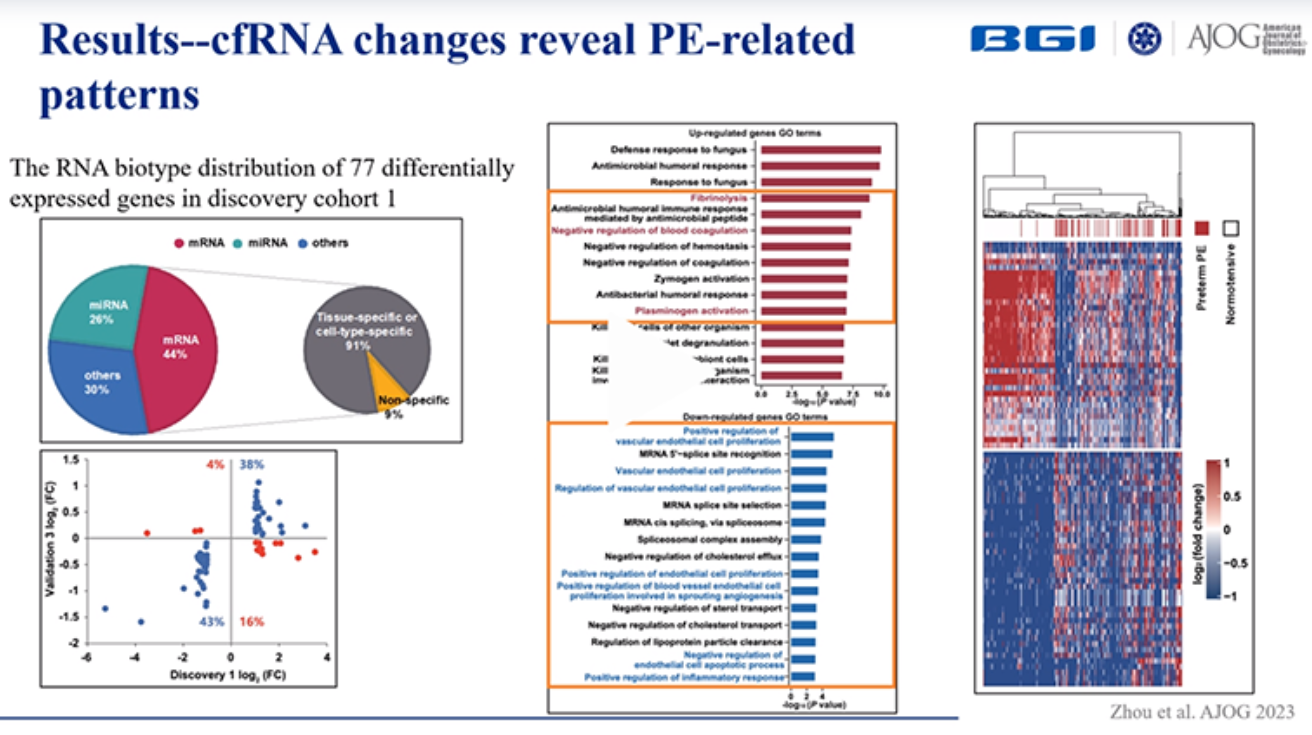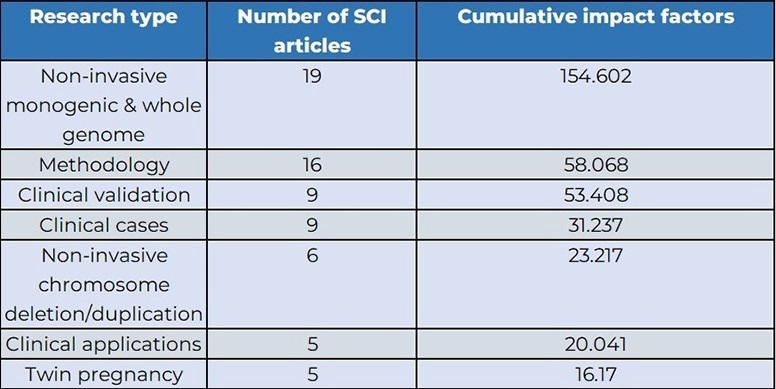Sponsored Content by BGI GenomicsReviewed by Olivia FrostAug 15 2023
Preeclampsia is a serious pregnancy disorder marked by elevated blood pressure and the presence of proteins in urine. It impacts approximately 2% to 4% of expectant mothers worldwide, resulting in approximately 46,000 maternal fatalities and roughly 500,000 deaths of both fetuses and newborns annually.
The intricate and diverse nature of preeclampsia poses challenges in anticipating risks and devising treatments.
A recent study, led by Dr. Zhou Si, the Senior Manager of BGI Genomics Clinical Research, and a team of scientists, has been unveiled in the American Journal of Obstetrics and Gynecology. Their study illuminates a potential diagnostic avenue for this condition utilizing plasma cell-free RNA (cfRNA).
Method and findings
CfRNA is liberated from cells into the bloodstream, offering insights into an array of ailments, including preeclampsia. CfRNA encompasses multiple RNA biotypes, including messenger RNA, microRNA, and long noncoding RNA.
In this study, the researchers analyzed cfRNA from 917 pregnancies — 715 healthy pregnancies and 202 pregnancies affected by preeclampsia before symptom manifestation.
Some key findings include:
1. Detection of 77 genes, encompassing messenger RNA (44%) and microRNA (26%), displaying differential expression in healthy mothers versus mothers grappling with preterm preeclampsia ahead of symptom onset.

Image Credit: BGI Genomics
2. Formulation of two classifiers to predict preterm preeclampsia and early-onset preeclampsia pre-diagnosis, based on 13 cell-free RNA signatures and two clinical attributes (in vitro fertilization and mean arterial pressure), respectively.
3. The messenger RNA, microRNA, and long noncoding RNA has for the first time been found to simultaneously serve as potential preeclampsia biomarkers, holding the potential to avert preeclampsia in forthcoming pregnancies.
4. Dissecting abnormal alterations in cell-free messenger RNA, microRNA, and long noncoding RNA molecules aid in elucidating the causal determinants of preeclampsia.
Leveraging cfRNA for NIPT research
The findings of this study significantly expand the current understanding in this domain, demonstrating that combinations of distinct RNA biotypes and two clinical characteristics are linked to enhanced precision in predicting preeclampsia risk. This discovery opens up novel avenues for effectively mitigating pregnancy complications and fetal morbidity.
BGI Genomics will continue harnessing multi-omics technologies to expedite research about maternal and infant health, thereby introducing the additional potential for prenatal screening of genetic disorders.
This project adheres to pertinent regulations governing biological and medical research and has received approval from the company's Ethics Committee.
Source: BGI Genomics

About BGI Genomics
BGI Genomics is the world's leading integrated solutions provider of precision medicine, now serving customers in more than 100 countries.
They provide academic institutions, pharmaceutical companies, healthcare providers, and other organizations with integrated genomic sequencing, proteomic services, clinical testing, and solutions across a broad range of applications.
They have more than 20 years of genomics experience helping customers and partners achieve their goals by delivering rapid, high-quality results using a broad array of cost-effective, cutting-edge technologies, including their own innovative DNBSEQ™ sequencing technology.
Sponsored Content Policy: News-Medical.net publishes articles and related content that may be derived from sources where we have existing commercial relationships, provided such content adds value to the core editorial ethos of News-Medical.Net which is to educate and inform site visitors interested in medical research, science, medical devices and treatments.